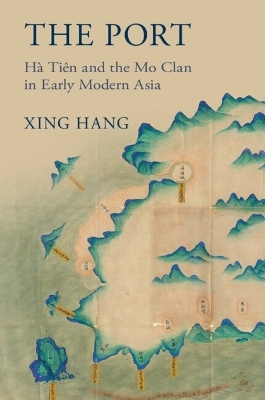
The Port
Hà Tiên and the Mo Clan in Early Modern Asia
Seiten
2024
Cambridge University Press (Verlag)
978-1-009-42696-1 (ISBN)
Cambridge University Press (Verlag)
978-1-009-42696-1 (ISBN)
At the crossroads of China and Southeast Asia, The Port (present-day Hà Tiên), under the autonomous rule of the Chinese creole Mo clan, prospered as a free-trade emporium during the eighteenth century. Its remarkable story sheds fresh light on a transitional period in maritime East Asian history.
The Port (present-day Hà Tiên), situated in the Mekong River Delta and Gulf of Siam littoral, was founded and governed by the Chinese creole Mo clan during the eighteenth century and prospered as a free-trade emporium in maritime East Asia. Mo Jiu and his son, Mo Tianci, maintained an independent polity through ambiguous and simultaneous allegiances to the Cochinchinese regime of southern Vietnam, Cambodia, Siam, and the Dutch East India Company. A shared value system was forged among their multiethnic and multi-confessional residents via elite Chinese culture, facilitating closer business ties to Qing China. The story of this remarkable settlement sheds light on a transitional period in East Asian history, when the dominance of the Chinese state, merchants, and immigrants gave way to firmer state boundaries in mainland Southeast Asia and Western dominance on the seas.
The Port (present-day Hà Tiên), situated in the Mekong River Delta and Gulf of Siam littoral, was founded and governed by the Chinese creole Mo clan during the eighteenth century and prospered as a free-trade emporium in maritime East Asia. Mo Jiu and his son, Mo Tianci, maintained an independent polity through ambiguous and simultaneous allegiances to the Cochinchinese regime of southern Vietnam, Cambodia, Siam, and the Dutch East India Company. A shared value system was forged among their multiethnic and multi-confessional residents via elite Chinese culture, facilitating closer business ties to Qing China. The story of this remarkable settlement sheds light on a transitional period in East Asian history, when the dominance of the Chinese state, merchants, and immigrants gave way to firmer state boundaries in mainland Southeast Asia and Western dominance on the seas.
Xing Hang is Associate Professor at the Department of Chinese History and Culture at the Hong Kong Polytechnic University.
Introduction; 1. The port before 'the port'; 2. Managing hybridity; 3. Situating space through verse; 4. Ambiguous associations; 5. A port with many faces; 6. The business of business; 7. Clash of the titans; Conclusion; Glossary.
| Erscheinungsdatum | 19.11.2024 |
|---|---|
| Zusatzinfo | Worked examples or Exercises |
| Verlagsort | Cambridge |
| Sprache | englisch |
| Themenwelt | Geisteswissenschaften ► Geschichte ► Regional- / Ländergeschichte |
| Geschichte ► Teilgebiete der Geschichte ► Wirtschaftsgeschichte | |
| ISBN-10 | 1-009-42696-6 / 1009426966 |
| ISBN-13 | 978-1-009-42696-1 / 9781009426961 |
| Zustand | Neuware |
| Haben Sie eine Frage zum Produkt? |
Mehr entdecken
aus dem Bereich
aus dem Bereich
die Ukraine, Polen und der Irrweg in der russischen Geschichte
Buch | Hardcover (2023)
C.H.Beck (Verlag)
CHF 39,20


